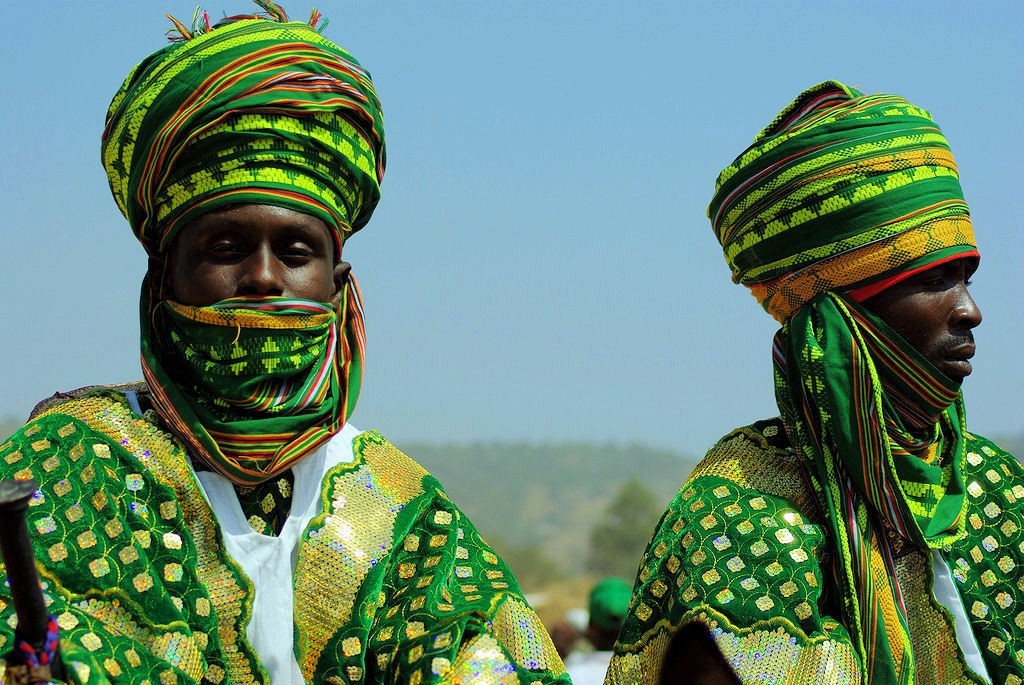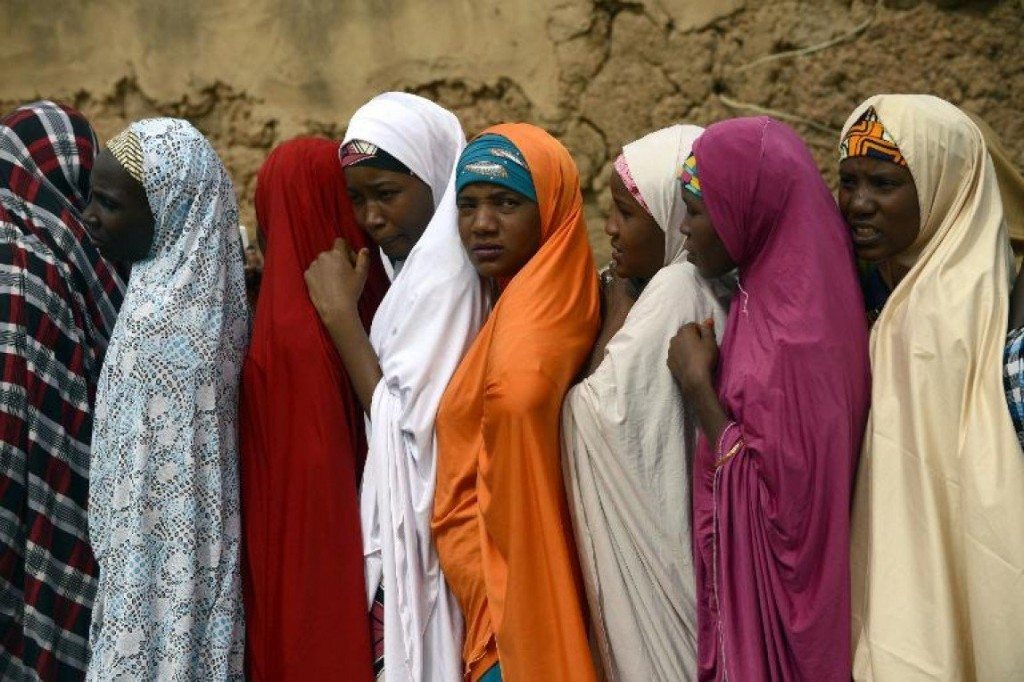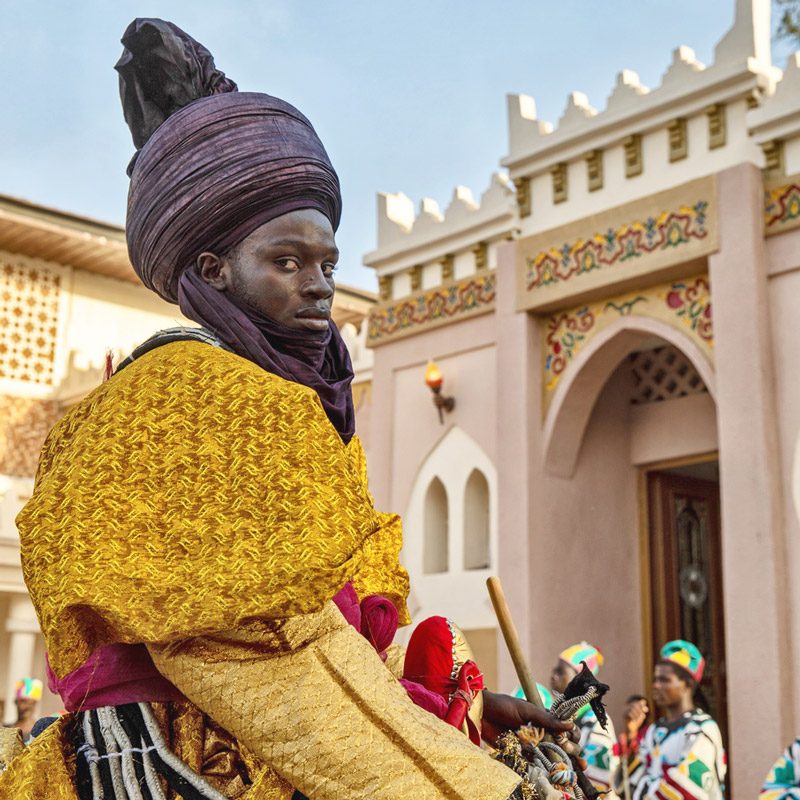There's a remarkable community in West Africa, a truly significant part of the region's human story, you know? This group, known as the Hausa people, has deep roots in the land, making them a very original part of the cultural make-up there. They are, in fact, one of the most widely recognized and influential groups across the whole of West Africa, and that's saying something, too it's almost. Their presence stretches across a good portion of the area, forming a big part of the local identity.
This community, which is quite large, you see, has helped shape the cultural landscape, particularly in places like Nigeria and Niger. They have a way of life that's distinct, with certain customs and ways of doing things that are pretty much just theirs. It's not just about their size, though that is quite something; it's also about the way they have lived and grown, creating a rich history that has touched many parts of the continent. So, their influence is pretty broad, actually.
As we look closer at the Hausa, we discover that there's more to them than what many people might typically think. Beyond the usual ideas some folks have, there are a lot of fascinating details and important facts that paint a more complete picture of who they are. It’s a chance to truly get to know a people who have built a strong, lively civilization, marked by a deep past and a really spirited way of living. We, like your, will explore some of these aspects.
- Happy Birthday My Love Msg
- Taylor Russell Age
- Who Is Khloe Kardashian Baby Daddy
- Lil Babys Bm Ayesha
- Conversation To Have With Your Girlfriend
Table of Contents
- Who Are the Hausa People, Really?
- What Makes the Hausa Culture Unique?
- A Look at Hausa Ways of Life
- The Hausa People's Wider Reach
Who Are the Hausa People, Really?
The Hausa people are a group of individuals who call West Africa their original home. They have been present in this part of the world for a very long time, establishing themselves as a foundational community within the broader collection of peoples in the area. When we talk about them, we are talking about a community that has deep historical ties to the land, which is pretty neat, you know? They are not newcomers, but rather a people whose story is woven into the very fabric of the region.
In terms of numbers, the Hausa represent one of the most substantial groups of people across all of West Africa. This means that when you consider the various peoples living there, the Hausa stand out as one of the very largest. Their sheer size gives them a considerable presence and, in some respects, a significant voice in the affairs of the area. It's almost like they are a cornerstone for the region's human makeup, actually.
Within Nigeria, a nation known for its many different communities, the Hausa stand as one of the three most important groups. This puts them in a position of considerable influence and visibility within the country's social and cultural framework. Their importance there is quite clear, playing a big role in the country's overall identity. So, they are a very big deal, as a matter of fact, within Nigeria itself.
- Willow Smith Eye Colour
- Raw Confession
- Pape Francois Net Worth
- Where Is Emma Chamberlain From
- Rulon Jeffs How Many Wives
Where Do the Hausa Ethnic Group Live?
When you think about where the Hausa people generally make their homes, you'd look primarily to the northwestern part of Nigeria. That's a major area where you'll find a strong concentration of this community. But their presence doesn't stop there; they also have significant numbers living in the southern areas of Niger, which is a country right next door. So, these two places are really central to understanding the main living spaces of the Hausa ethnic group.
Beyond these primary areas, the Hausa people are also found in other parts of the Sahel region. This includes places like Cameroon, Ghana, and even Côte d'Ivoire. You'll also find them in Chad and Sudan, which just goes to show how far their presence extends across the African continent. This wide distribution suggests a history of movement and connection with many different places, which is pretty interesting, if you ask me.
Their historical heartland, often referred to as Hausaland, covers both northwestern Nigeria and that adjoining southern part of Niger. This area has been their traditional home for ages, where their distinct way of life has truly taken shape. It’s the place where much of their unique culture and practices have been nurtured and developed over generations. Basically, it's their cultural center, you know?
What Makes the Hausa Culture Unique?
The Hausa people have a way of life that stands out in many different ways. There are certain aspects of their culture that are pretty much only found among them, making their practices quite distinct. This means that when you observe their traditions, their daily routines, or their special celebrations, you’ll notice particular elements that give their culture a very unique feel. It's like they have their own special flavor, so to speak, that sets them apart from other groups.
They have built a civilization that is truly thriving, especially in its urban centers and commercial activities. This shows a long history of successful trade and city living, which is quite impressive. Their way of life has allowed them to create a rich past, filled with many important events and developments. And their culture, too, is very lively and full of spirit, reflecting a people who have a deep sense of who they are and where they come from. It’s a culture that has a lot of energy, you know?
Beyond what some people might typically think about the Hausa, there's a lot more to discover about their culture that is both important and genuinely interesting. It's not just about common ideas; there are many layers to their way of life that reveal a complex and deeply rooted identity. These deeper facts provide a much fuller picture of their traditions and what makes them such a significant community. So, there's quite a bit to learn, actually.
How Has the Hausa Language Shaped Their Identity?
The language spoken by the Hausa people, simply called Hausa, is a very important part of who they are. It's not just a way to communicate; it's a central piece of their shared identity. This language holds a special place because it's the second most spoken tongue within the entire Afro-Asiatic language family, coming right after Arabic. That's a pretty big deal, indicating its wide reach and importance, you know?
The fact that so many people communicate using Hausa means it plays a significant role in connecting individuals across different areas. It acts as a common thread, allowing people from various places to share ideas and stories. This linguistic connection helps to reinforce a sense of belonging among the Hausa people, giving them a shared voice and a common way to express their thoughts and feelings. It really does bring them together, in a way.
Beyond their own community, the Hausa language also serves as a means of connection with other groups. Its widespread use makes it a useful tool for trade and interaction across West Africa. So, it's not just for the Hausa themselves; it helps build bridges with others. This broad acceptance of their language is a testament to their influence and their ability to connect with a wider world, which is pretty cool, if you ask me.
A Look at Hausa Ways of Life
The Hausa people have a particular way of life that has been shaped over many generations. They have developed specific practices that are quite distinct, setting them apart from other groups. These practices are not just random habits; they are deeply woven into the fabric of their daily existence and special occasions. It’s like they have a unique set of traditions that really define their approach to living, which is quite fascinating, you know?
Their way of life has also allowed them to build a civilization that is very much focused on urban living and commercial activities. This means that for a long time, they have been adept at creating lively cities and engaging in trade, which has helped them to grow and prosper. This emphasis on trade and city life has contributed to a very rich history, full of interactions and cultural exchanges. So, they are very much a people of the city and the marketplace, in some respects.
The contributions of the Hausa people to the overall makeup and historical background of Nigeria are quite notable. They have brought their own distinct flavor to the nation's diversity, adding to the rich mix of communities that make up the country. Their unique customs and ways of thinking have helped to shape the national identity in a significant way. It's fair to say they've played a really big part, actually, in building the country's story.
What About the Hausa Ethnic Group's Beliefs?
When it comes to the spiritual practices of the Hausa people, the main way of thinking for most of them is Islam. This faith is widely followed within the community, guiding many aspects of their daily lives, their customs, and their social structures. It’s a belief system that has deeply influenced their culture, shaping everything from their laws to their family life and their celebrations. So, it's a very central part of who they are, you know?
Alongside the widespread practice of Islam, there are also some smaller, traditional spiritual practices that are still present among certain individuals. These are beliefs that have been passed down through generations, often connected to the land and older ways of understanding the world. While Islam is the predominant faith, the existence of these native customs shows a blend of influences within their spiritual landscape. It's a bit like having different layers of belief, in a way.
The influence of these beliefs, especially Islam, extends beyond just personal practice. It has helped to shape their approach to community, justice, and even how they interact with others. The principles of their faith are often reflected in their social norms and their approach to living together. This deep connection to their spiritual side is a defining characteristic of the Hausa ethnic group, playing a big role in their collective identity.
The Hausa People's Wider Reach
The Hausa people, while having strong roots in specific areas, have also become quite spread out geographically over the years. This has happened a lot because of how cities have grown and changed, drawing people from various places. So, while you might primarily find them in northwestern Nigeria, you’ll also come across Hausa individuals and families in many other urban centers, which is pretty interesting, you know?
This movement and settling in new places has also led to many Hausa individuals mixing with other communities. They have formed connections and relationships with people from different backgrounds, creating a more diverse social fabric. This kind of intermingling shows a readiness to adapt and connect with others, which is a sign of a very dynamic community. It means their culture is not static, but rather something that grows and changes, actually.
Their presence as one of the most numerous groups in West Africa means they have a broad impact across the region. Their customs, their language, and their ways of doing business have touched many different societies. This wide reach shows how important they are, not just within their own specific areas, but as a significant force in the broader cultural and economic life of West Africa. So, their influence is pretty extensive, as a matter of fact.
How Have the Hausa Ethnic Group Connected with Others?
The Hausa people have a long history of connecting with other communities, which has helped them to spread their influence and also to learn from others. Their involvement in trade, for instance, has meant that they often interact with various groups, exchanging goods and ideas. This constant back-and-forth has allowed them to build relationships and establish a presence far beyond their traditional homelands. It’s a sign of their adaptability, you know?
As they have moved into different urban areas, they have naturally come into contact with people from many different ethnic backgrounds. This has led to a lot of blending and shared experiences, where customs and ways of thinking can sometimes mix. This process of intermingling has made their community even richer, adding new perspectives while still holding onto their core identity. So, they are very much a part of the bigger picture, in a way, of West Africa's diverse population.
Nigeria itself is a country with a vast array of different communities, something like 371 distinct groups. Among these many peoples, the Hausa stand out as one of the three largest, alongside the Yoruba and the Igbo. This position means they are a major player in the country's social and political life, often interacting with these other prominent groups. This level of connection helps to shape the nation as a whole, which is pretty important, actually.
- Natalie Dyer Age
- What Happened To Fantasia Daughter Zion
- What Happens When You Restrict Someone
- What Is Jordan Matters Net Worth
- Tracy Morgan Dead



Detail Author:
- Name : Noble Stroman
- Username : ycartwright
- Email : thurman01@zieme.com
- Birthdate : 1997-12-01
- Address : 518 Nicklaus Burgs Suite 248 Port Shanyshire, MN 61881
- Phone : 820-246-8166
- Company : Donnelly, Rolfson and Parisian
- Job : Order Filler
- Bio : Autem et voluptatem et at nisi. Optio distinctio qui et placeat iste delectus. Quia ut aspernatur tempora distinctio nisi sunt a. Ipsam fugit natus adipisci.
Socials
twitter:
- url : https://twitter.com/rebecca_hickle
- username : rebecca_hickle
- bio : Deserunt totam minima eum. Non consequuntur sint magni asperiores. Ab modi est ratione deleniti qui. Molestiae dolores voluptas et minima est qui et.
- followers : 4104
- following : 56
instagram:
- url : https://instagram.com/rhickle
- username : rhickle
- bio : Est aut laudantium consequatur ipsum ducimus. Provident quis tempora deserunt officiis.
- followers : 897
- following : 2143
